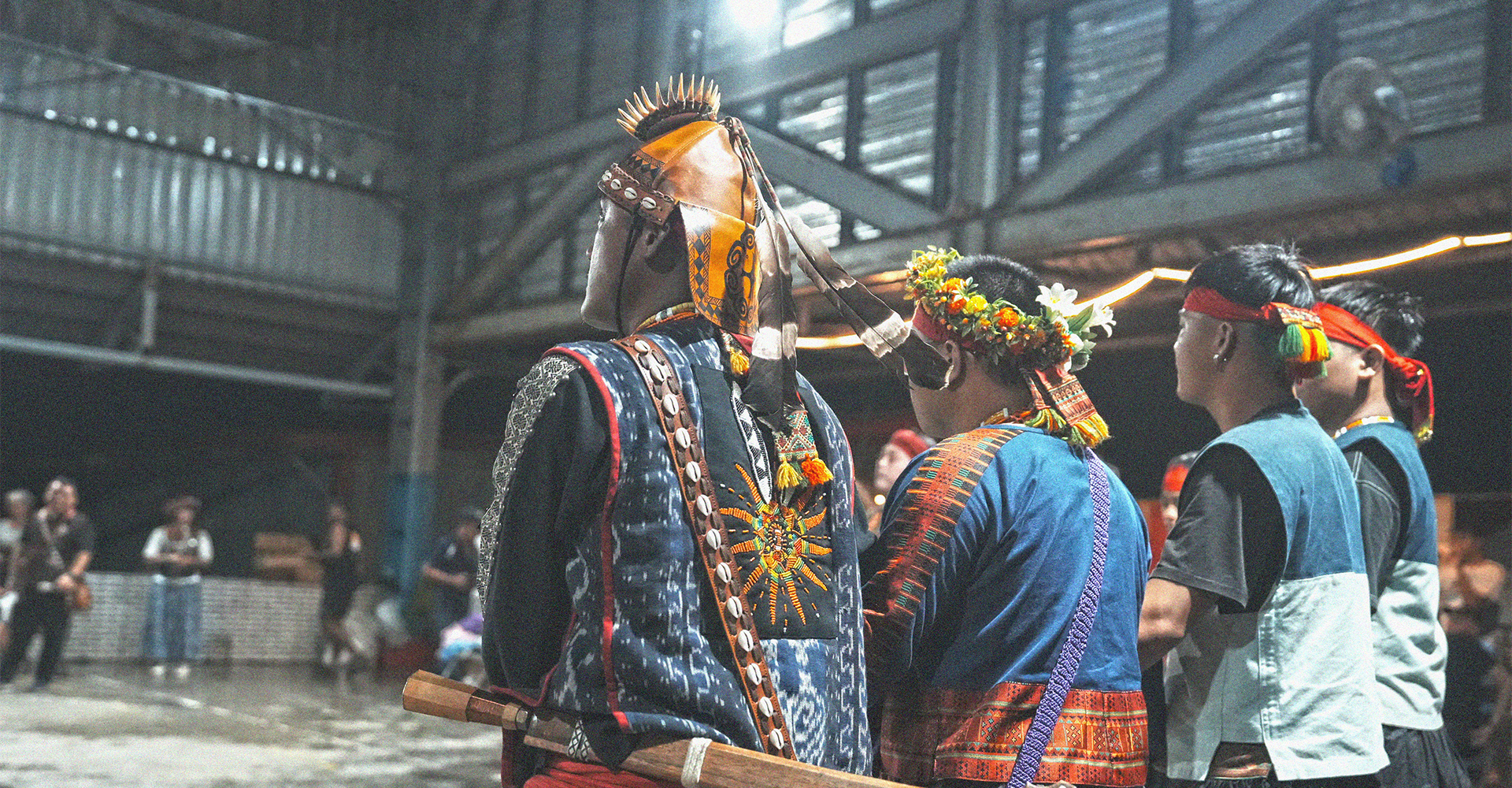
“Who am I?”
For a long time, has this question echoed somewhere deep within your heart — a quiet reflection, a search for meaning?
As the years go by, our bond with this land and its cultural nourishment only grows stronger.
Culture is our foundation — it calls us to rediscover who we truly are, to take root in this fertile soil, to embrace it, and to stride forward with pride.
Come and join the Millet Harvest Festival — perhaps the answer lies there.
Millet farmer Lin Chien-Chung warmly invites everyone to experience the festival firsthand — to feel the unity of the entire tribe in motion, and the joy and vitality that fill the celebration!
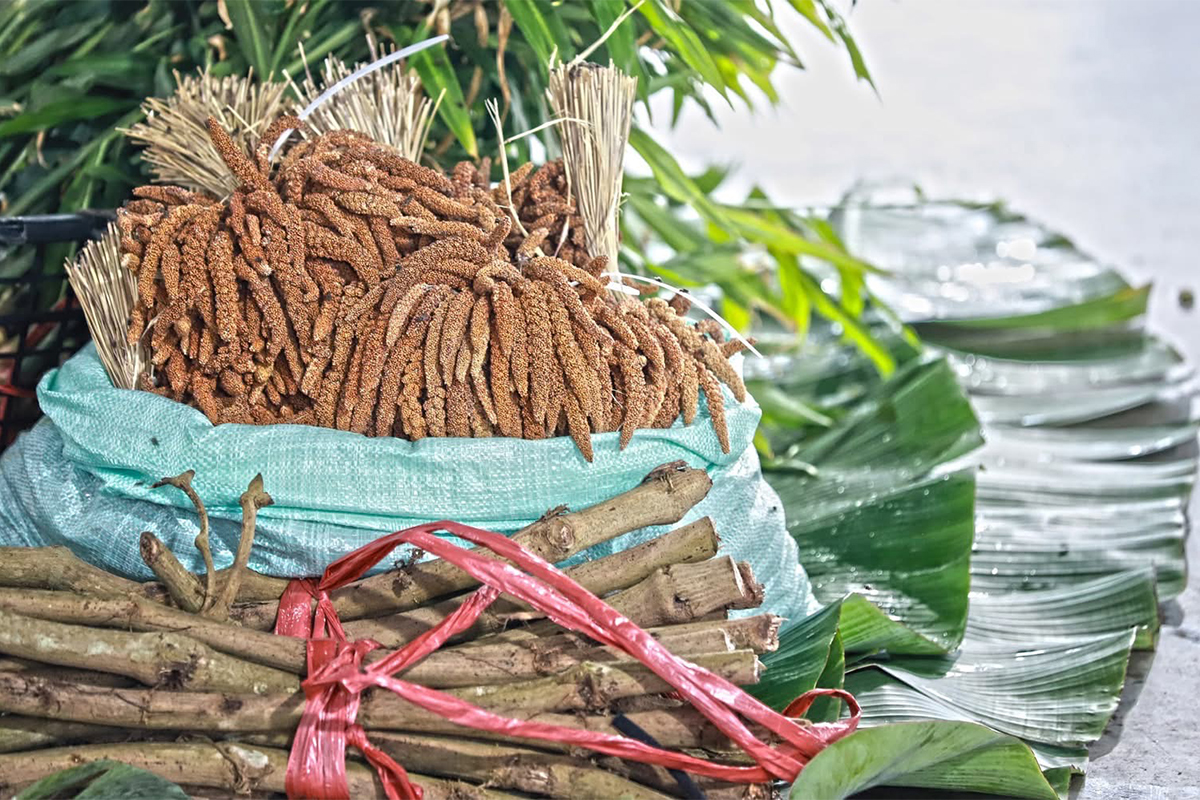 #Masuvaqu — The Millet Harvest Festival celebrates gratitude for the harvest; <br>all rituals unfold in this spirit.
#Masuvaqu — The Millet Harvest Festival celebrates gratitude for the harvest; <br>all rituals unfold in this spirit.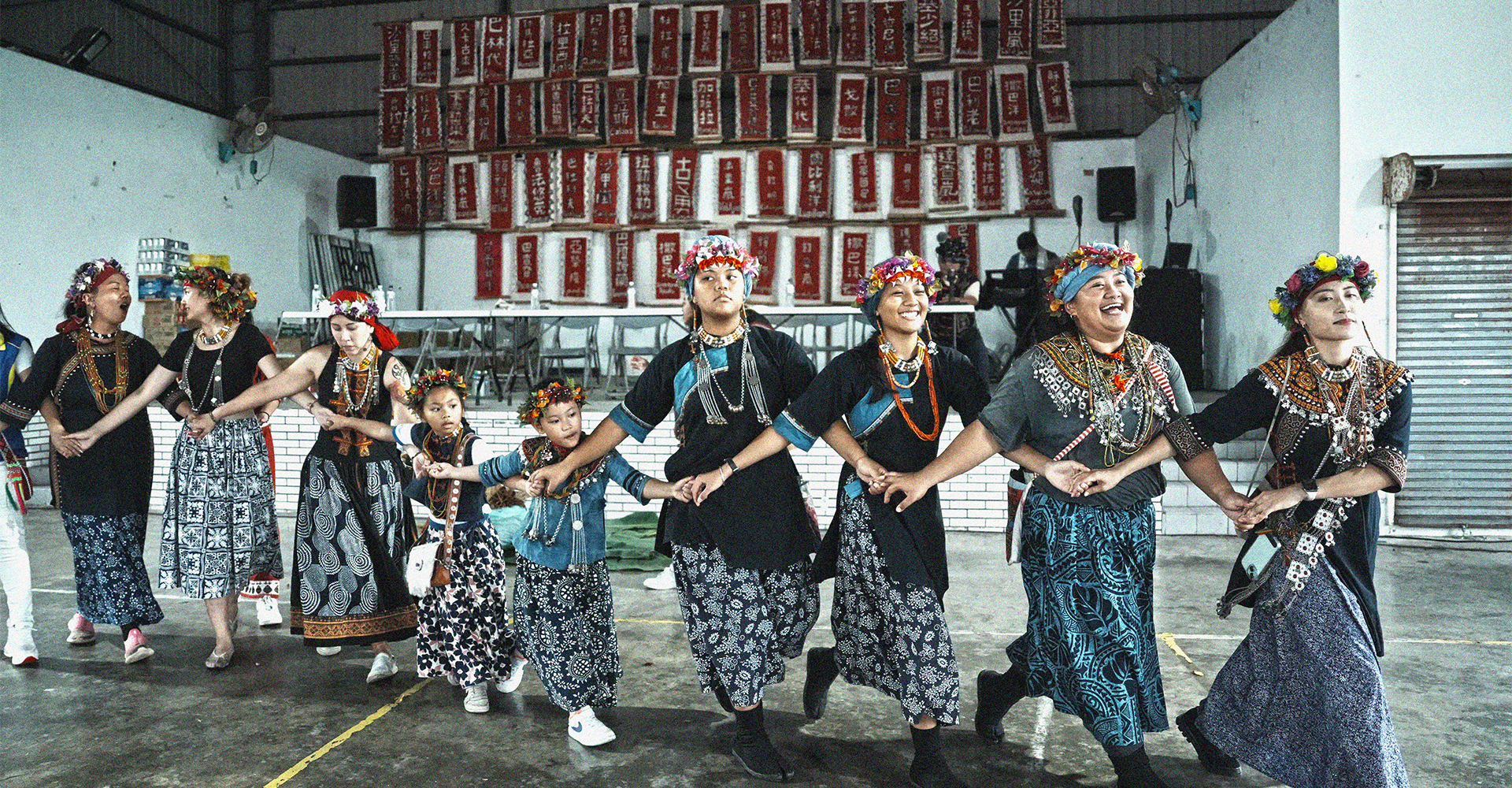
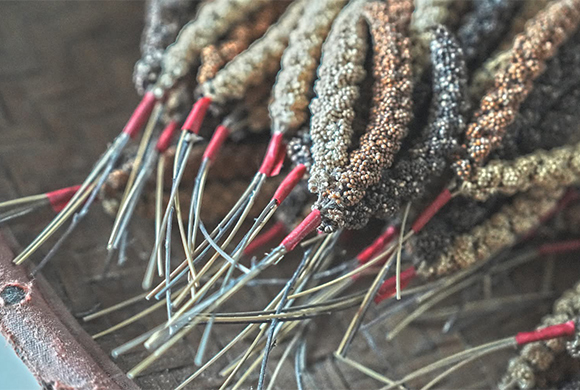
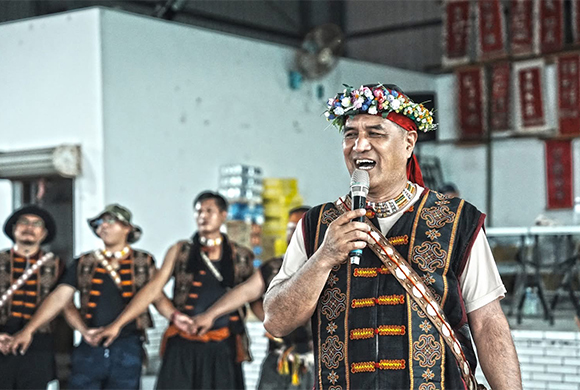 In 2005, under Pastor Tai Ming-Hsiung (top photo) and Sakinu, <br>the tribe began to revive the forgotten Paiwan traditions and replant the elders’ treasured millet.
In 2005, under Pastor Tai Ming-Hsiung (top photo) and Sakinu, <br>the tribe began to revive the forgotten Paiwan traditions and replant the elders’ treasured millet.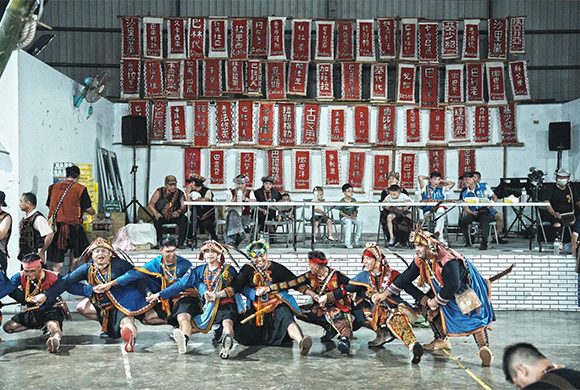
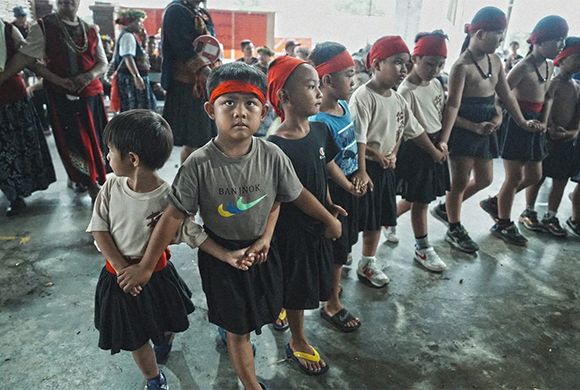
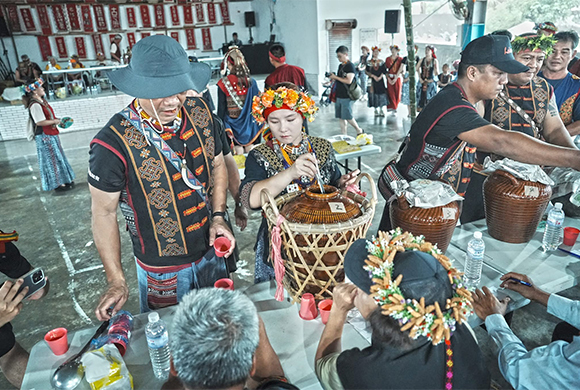 A special traditional skill — <br>the millet wine brewing competition.
A special traditional skill — <br>the millet wine brewing competition.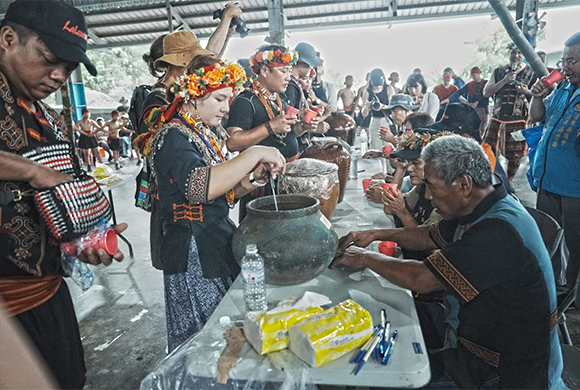 Before the festival, <br>each household brews millet wine to share on the day of celebration.
Before the festival, <br>each household brews millet wine to share on the day of celebration.#The Road of Cultural Rebirth
Twenty years ago, the Lalauan Tribe was displaced and lived together with the Amis people.
Because of their smaller population, the Paiwan people who settled here gradually lost much of their traditional culture, and their rituals were displaced by those of the Amis.
In 2005, under the leadership of Pastor Tai Ming-Hsiung and Sakinu, the community began to reclaim their forgotten Paiwan traditions.
The elders’ treasured millet seeds were once again planted in their ancestral land — and from this soil grew not only millet, but also a renewed sense of cultural identity and belonging.
#Masuvaqu
The heart of masuvaqu — the Millet Harvest Festival — is gratitude: thanksgiving for the bounty of the land and the blessings of the harvest.
Every ritual and activity unfolds around this spirit of thankfulness.
At dawn, the festival begins with the sound of the youth group’s cannon fire, welcoming the chief’s arrival.
Singing, dancing, and millet wine fill the air.
The people dress in their finest attire — as grand as the Lunar New Year — smiling hand in hand, dancing in circles to the rhythm of hearts beating together.
Friends from other tribes arrive to celebrate, and visitors are swept up in the festive atmosphere — dancing along, as if there were no boundaries between strangers, only shared joy and connection.
A highlight of masuvaqu is the traditional millet wine brewing competition.
Before the festival, each household brews its own millet wine, which is shared on the festival day.
The community then selects the finest and most aromatic wine of the year.
Another cherished event is the language award ceremony for children, encouraging the younger generation to learn and carry on their mother tongue — keeping the culture alive through oral tradition.
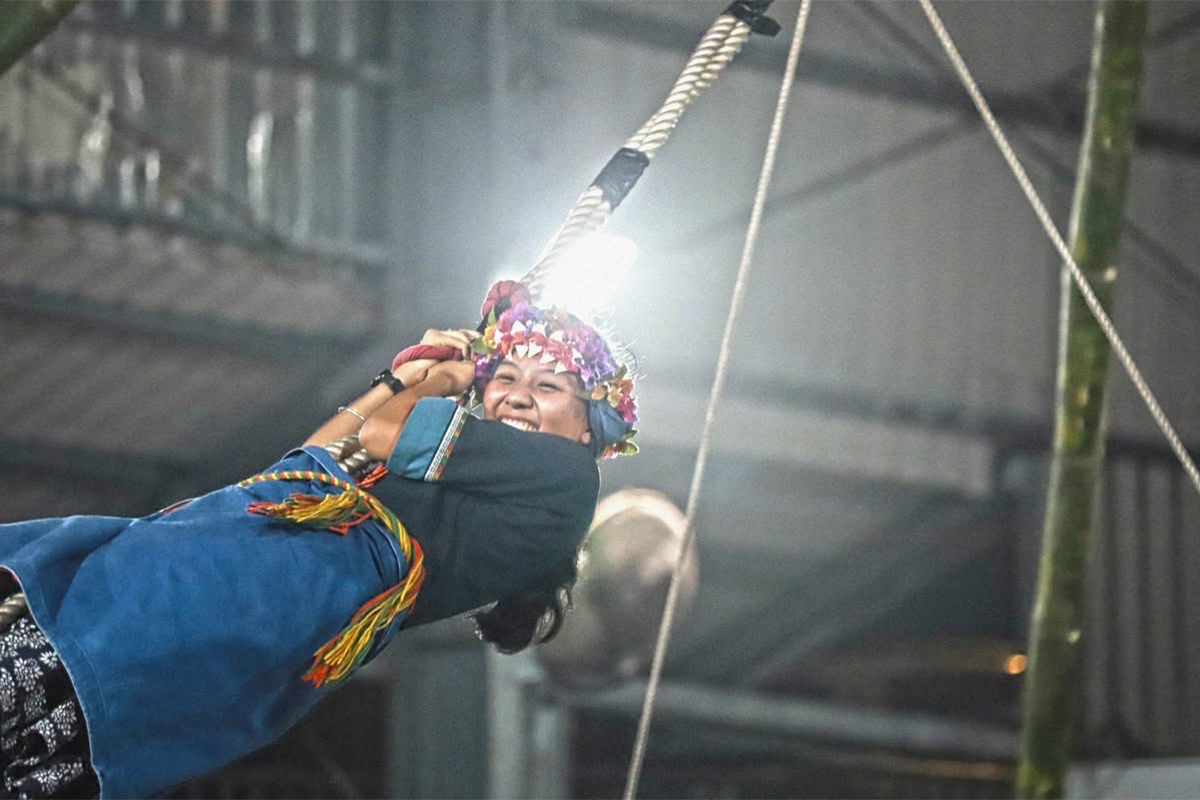 The Lovers’ Swing — women are lifted by men and cannot touch the ground; <br>the higher the swing, the deeper the love.
The Lovers’ Swing — women are lifted by men and cannot touch the ground; <br>the higher the swing, the deeper the love.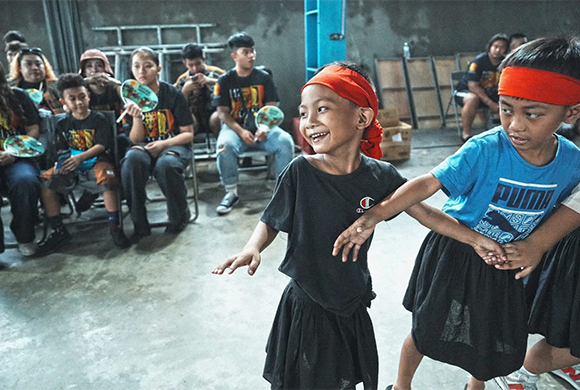
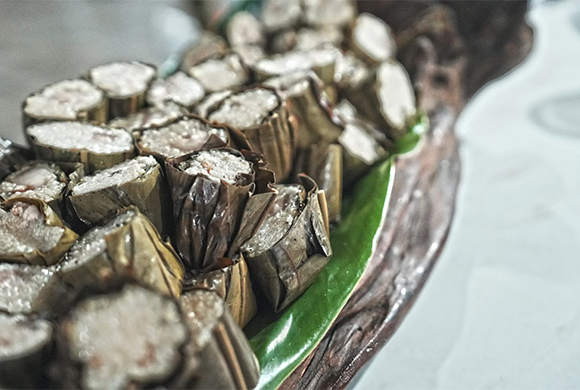
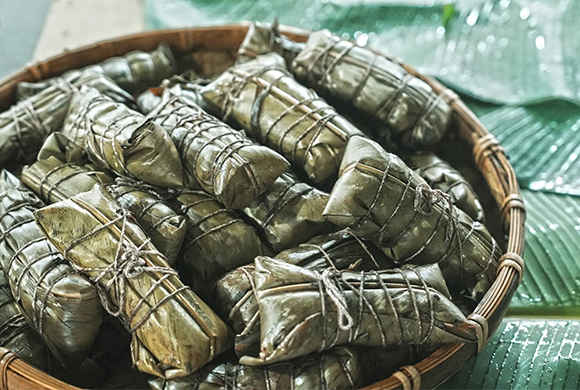
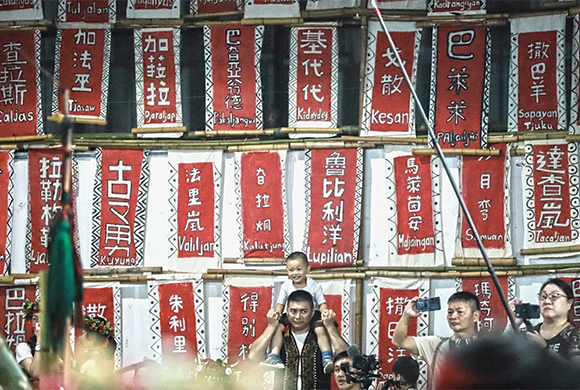
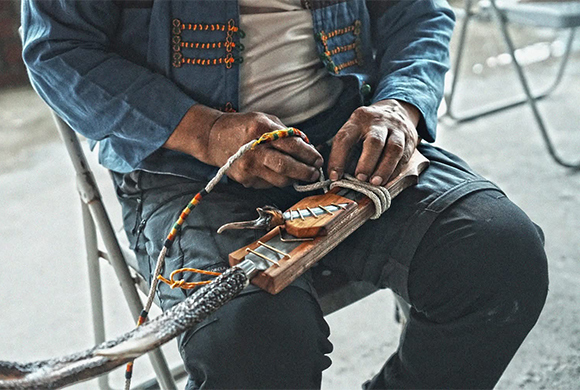
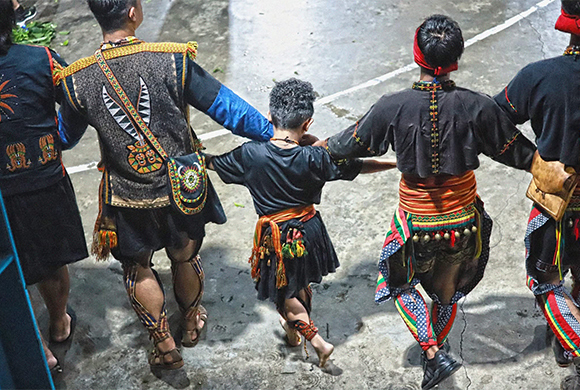 The people dress in their finest, like a grand New Year celebration — <br>smiling, hand in hand, dancing in circles with open hearts.
The people dress in their finest, like a grand New Year celebration — <br>smiling, hand in hand, dancing in circles with open hearts.As night quietly descends,
the festival reaches its climax with the children’s bamboo climbing rite of passage,
and the Lovers’ Swing adds a tender, romantic touch to the evening.
When a woman gets on the swing, she must be lifted by her partner without touching the ground — the higher she swings, the deeper the love it symbolizes.
Millet and culture — because once lost, we now treasure them even more.
The Paiwan word “Lalauan” means “fertile land.”
Here, millet takes root once again, and so too does a culture — thriving, enduring, passed on from generation to generation.
And as the taste of millet still lingers on our lips,
many quietly mark the next masuvaqu in their calendars —
looking forward to returning to this warm, memory-filled land .
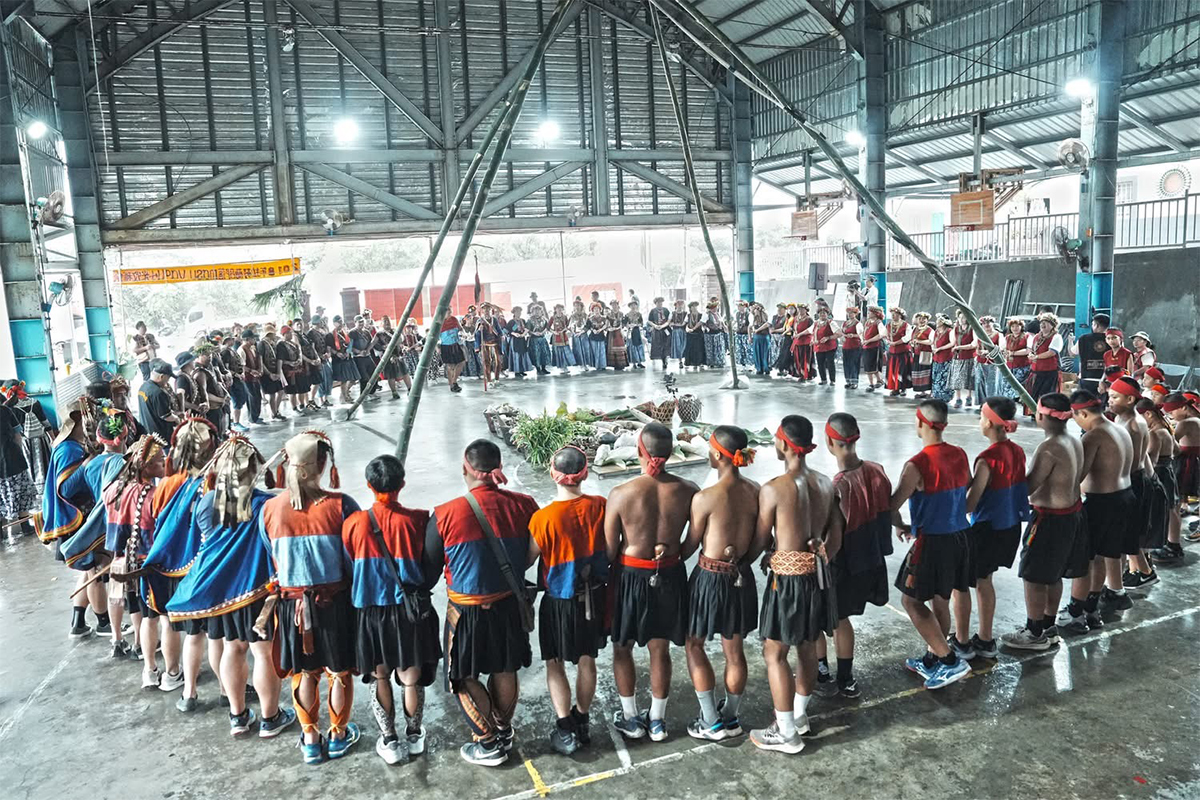 “Lalauan” in Paiwan means “fertile land.”
“Lalauan” in Paiwan means “fertile land.”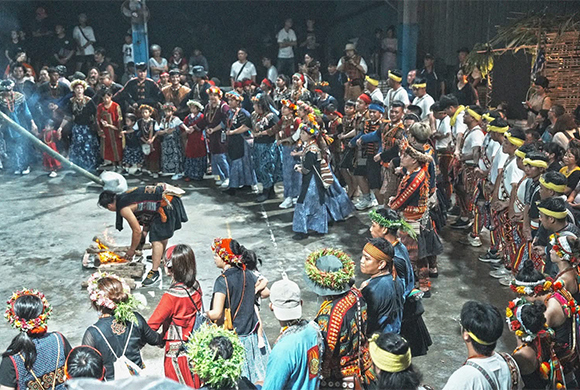
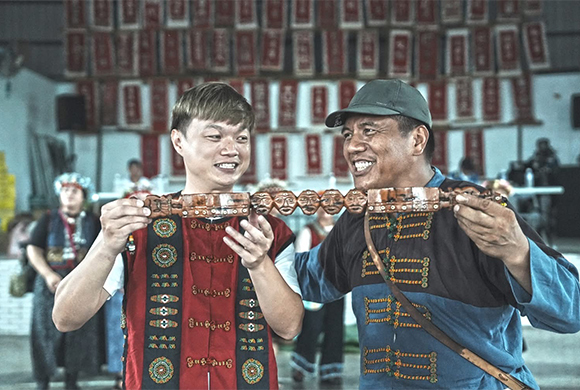 In 2005, under Pastor Tai Ming-Hsiung and Sakinu (top right), <br>the tribe began replanting the elders’ treasured millet.
In 2005, under Pastor Tai Ming-Hsiung and Sakinu (top right), <br>the tribe began replanting the elders’ treasured millet.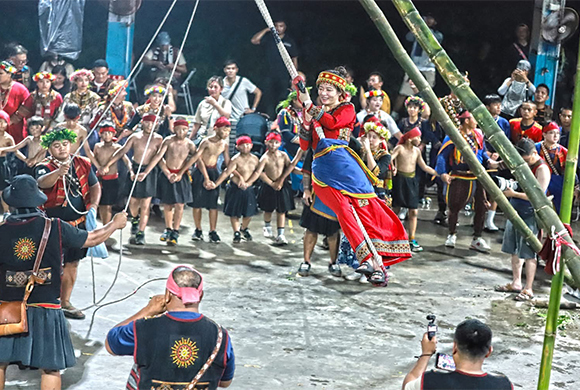
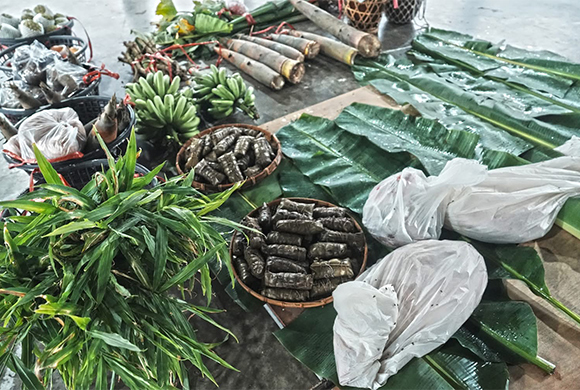
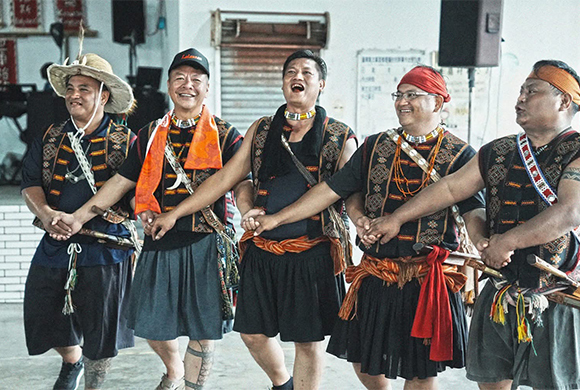 Millet farmer Lin Chien-Chung (left 3rd) warmly invited Tse-Xin Foundation staff to join the Millet Harvest Festival.
Millet farmer Lin Chien-Chung (left 3rd) warmly invited Tse-Xin Foundation staff to join the Millet Harvest Festival.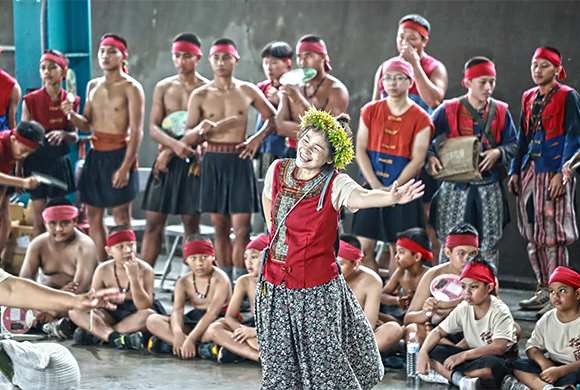
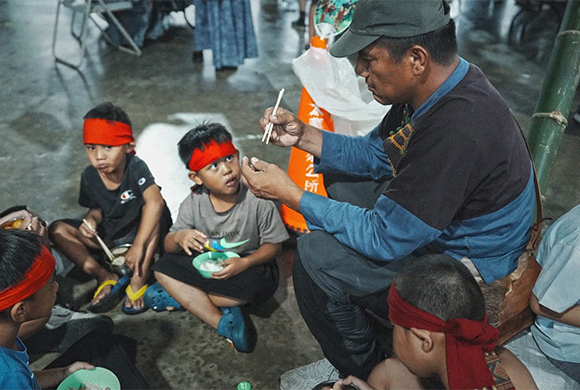
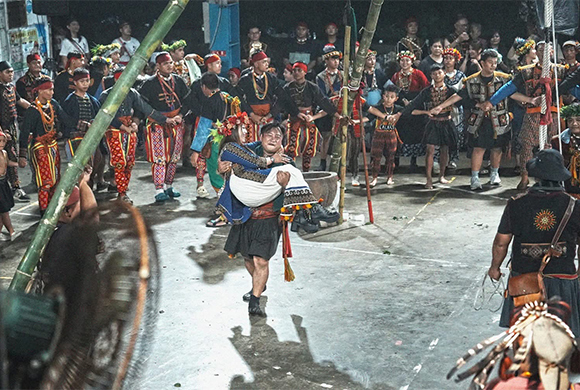
🌾 Let millet continue to take root on the hillsides—and sprout in the hearts of our children.
Through the “Millet in Schools” initiative, the Tse-Xin Foundation invites companies and all caring individuals to join us.
Let’s help children eat with awareness, and let their taste buds remember the flavor of this land.
👉 Support the Millet in Schools Initiative: https://forms.gle/uMB1Ncb6Fi7nZJAP8
👉 Contact: Director Chien Yu-Chuan, Tse-Xin Hualien–Taitung Office
Email: Email住址會使用灌水程式保護機制。你需要啟動Javascript才能觀看它
📽️ Millet in Schools Video: https://youtu.be/3nI2_5EdMQI?si=eQOBJ5jSz19d5Bhp
